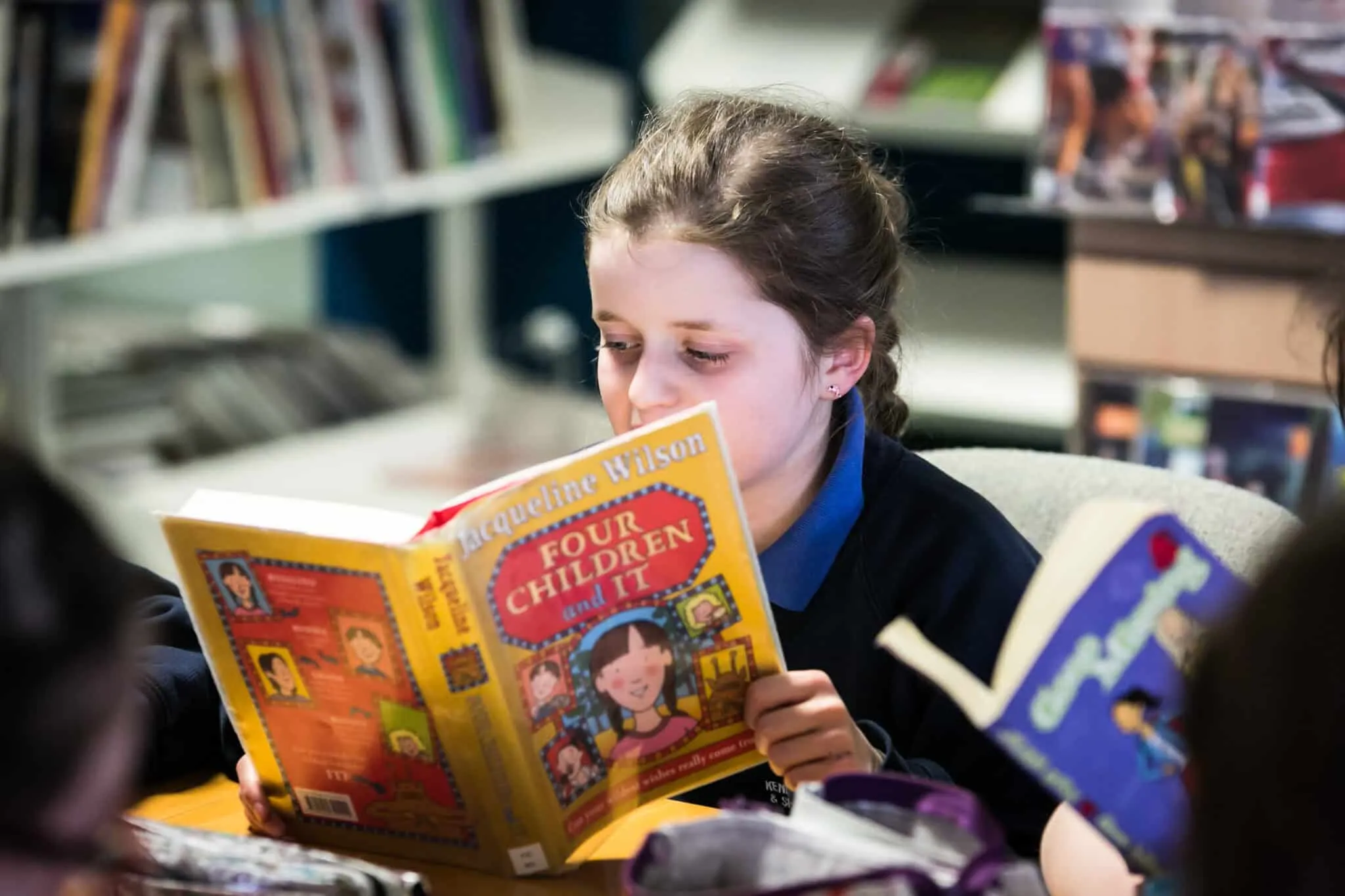January 13, 2025
Recent reports show a worrying decline in pupils’ reading habits. Our latest What Kids Are Reading Report found a 4.4% drop in the number of books read by over 1.2 million pupils across the UK and Ireland, from Year 1 to Year 11. This is the first decline, outside of the pandemic, since the report began in 2008.
In this first blog of our new year series, we explore reading trends and the challenges impacting pupils’ reading. We reflect on what we can learn from these trends and offer solutions for teachers looking to instil a love for reading in their pupils in 2025 and beyond. As we start the new year, it’s an excellent opportunity for teachers to harness the momentum of new year intentions to tackle these issues, improve literacy rates and encourage reading among their pupils.
Reading trends: the big picture
The Renaissance and GL Assessment Turning the Page Report reveals that teachers believe a third of their pupils are weak readers, causing teachers to lose 2.5 hours of curriculum time each week helping them to keep up with the curriculum. Despite this, a third of secondary schools lack a daily reading policy.
Further to this, the National Literacy Trust’s Annual Literacy Survey 2024, found only one in three (34%) children aged 8 to 18 enjoy reading in their free time, an 8.8 percentage point drop over the past year alone. The survey also highlights that children who enjoy reading and read daily have higher reading scores, highlighting the importance of encouraging regular reading.
The Education Policy Institute’s Annual Report shows disadvantaged pupils’ reading and maths results remain below pre-pandemic levels. Persistently disadvantaged pupils are nearly two years behind their peers by the end of secondary school and almost one year behind by the end of primary school.
These findings support the urgent need to tackle the factors affecting children’s reading habits. By understanding these trends, teachers can create and implement effective strategies to foster a love of reading and boost literacy rates.
What’s impacting children’s reading habits?
Children’s reading habits are influenced by several factors. Distractions like digital devices and online content are having a significant impact, with research showing it can take up to 20 minutes for pupils to refocus after browsing the internet or reading a phone notification.
Economic factors also play a significant role. The rising cost of living and child poverty limit many families’ access to books or mean that busy working parents simply do not have the time to read with their children, widening the attainment gap. In 2023, the disadvantage gap among five-year-olds was 4.6 months, with around 4.3 million children in the UK living in relative poverty.
Children also struggle to find engaging materials. A lack of exciting and relatable content can discourage sustained reading habits. Funding issues within schools themselves exacerbate this problem, with one in seven primary schools in the UK lacking a library.
Moving forwards: how teachers can help readers succeed
The Turning the Page report reveals that the vast majority of teachers (9 in 10) feel they have a personal responsibility to improve pupils’ reading, but many find the pressure overwhelming. However, simple actions like recommending books and talking about them can make a big difference. The report also revealed that two in five children said they would read more if books were recommended to them, and one in four would read more if friends or family talked about books.
To foster a love of reading and improve educational outcomes for pupils, we suggest the following actions for teachers and schools:
- Read aloud regularly: Structured read-aloud sessions help children advance quickly and become fluent readers. More reading time in school leads to higher attainment, especially when engaged reading time exceeds 30 minutes per day.
- Implement assessments: Use tools like Accelerated Reader and Star Reading to track and improve children’s reading abilities, addressing learning barriers and motivating progress.
- Parental involvement: Encourage parents to support reading at home. Good reading habits outside school significantly boost progress and foster a love of reading.
- Inclusive stories for all pupils: The WKAR report shows a trend this year towards more representative role models. New Entrants to the list of children’s favourite/most read authors/books include Marcus Rashford’s The Breakfast Club Adventures, Maria Isabel Sanchez Vegara’s Little People, BIG DREAMS, and Bryan Patrick Avery’s Black Men in Science.
- Engaging and challenging reads: Boost reading performance by encouraging frequent reading of appropriately challenging books, supported by digital tools like Accelerated Reader and myON.
Top reads of 2024: inspiring new texts for your 2025 reading lists
The WKAR report showcases the most popular books of 2024 for each year group, highlighting new authors and most-read books. These tables can inspire teachers seeking new texts for their 2025 reading lists. Teachers can find recommended titles and authors that pupils using Accelerated Reader have voted as their favourites. Each year, classics like Harry Potter and The Gruffalo return, but teachers can also discover emerging newcomers, such as Tom Fletcher’s Spaceband, a top new entry for years 3-5 in 2024. Discovering new stories helps teachers engage pupils and foster a deeper love of reading.
Essential tools for empowering young readers
Teachers don’t have to work alone. As a leading provider of teaching, practice and assessment tools such as Accelerated Reader (AR) and myON, Renaissance is uniquely positioned to help schools to develop and implement comprehensive reading strategies. These resources support the Department for Education’s reading framework requirements and foster a lifelong love of reading in students. By integrating these tools, teachers can create engaging and effective reading programmes that support students at all levels, ensuring every child has the opportunity to develop strong literacy skills and a passion for reading.
Access the What Kids Are Reading 2024 report here: www.whatkidsarereading.co.uk
